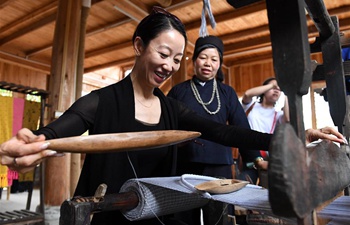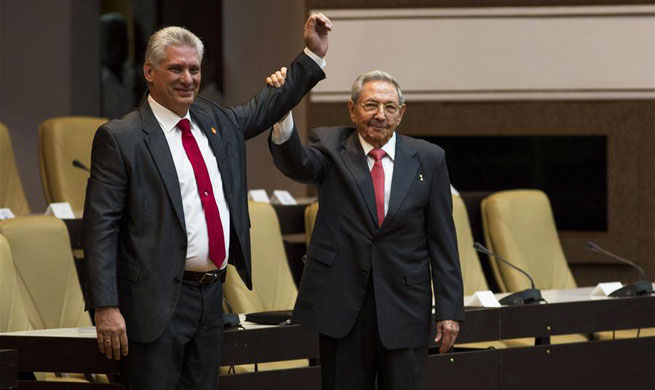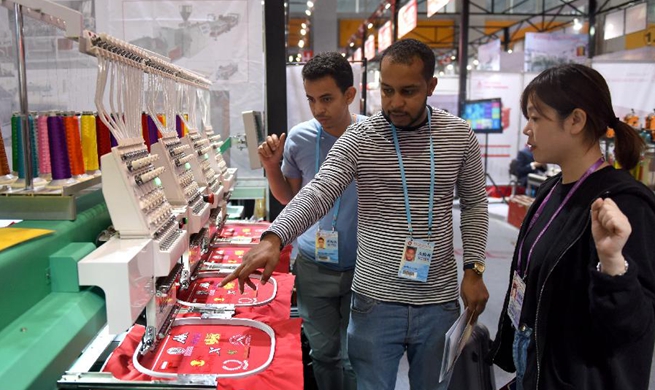BEIJING, April 19 (Xinhua) -- China said on Thursday that unilateralism and trade protectionism will inevitably harm others without benefiting oneself as the global economy is deeply integrated.
Foreign Ministry spokesperson Hua Chunying made the remarks when asked to comment on a U.S. Federal Reserve report released Wednesday.
According to the report, known as the beige book, businesses in much of the U.S. reported significant price increases for steel and aluminum products, because of tariffs on steel and aluminum imports.
It also said that firms in multiple sectors, including manufacturing and transportation, expressed concern about the tariffs' impact.
Hua quoted a report from the Brookings Institution saying the U.S.-China trade war will result in the loss of more than 2.1 million jobs in 2,700 U.S. counties.
In March, 107 Republican members of congress signed a letter urging President Donald Trump not to go through his tariff plan.
In the letter, the lawmakers wrote: "we urge you to reconsider the idea of broad tariffs to avoid unintended negative consequences to the U.S. economy and its workers."
At a working lunch with Japanese Prime Minister Shinzo Abe on Wednesday, Trump said the word "reciprocal" will be the primary word that the U.S. is going to be using.
"China, as an example, when they send a car to us, it's 2.5 percent tax.When we send a car to them, number one, they don't take it, and number two, it's 25 percent tax," Trump said.
When asked to comment on Trump's remarks, Hua retorted with facts:
First, the U.S. charges 2.5 percent tariff on imported cars but 25 percent on imported trucks;
Second, China has set a maximum tariff of 25 percent for whole vehicles, but only 10 percent for auto parts;
Third, most of the American cars sold to China are produced by the subsidiaries of the U.S. automobile companies in China.
Hua said General Motors(GM) sold about 4 million cars in China in 2017, and Cadillac has sold more cars in China than in the United States.
"It should be said that American auto companies have enjoyed a huge dividend in China," said Hua.
On the other hand, the U.S. exported more than 280,000 vehicles to China in 2017, while China exported only 53,000 vehicles to the U.S., said Hua, noting that it makes no sense to compare the import tax rates for whole vehicles of China and the U.S..
With regard to "reciprocal", Hua said as far as tariffs are concerned, the WTO does not have the principle of tariff reciprocity and WTO members also have different levels of tariffs.
Reciprocity and fairness can not speak for themselves, so standards can not be formulated according to one's own interests and needs, she said.
"Instead, we must rely on equal consultations to formulate unified international rules and standards and we must all respect them," said Hua.
To trade under coercion is by no means reciprocal and fair, she said, warning that self-righteous action may end up with suffering the consequences.
When answering a question about whether China's recent opening-up initiatives in the automobile industry are in response to U.S. pressure, Hua said China will advance reform and opening-up in accordance with the established goals and pace.
She said China's full liberalization of manufacturing industry is a clear indication of its opposition to trade and investment protectionism.
China supports the extensive and in-depth development of economic globalization and supports Chinese and foreign enterprises in achieving common development on a level playing field, she said.
"We welcome all countries to share the opportunities of China's opening-up and development," said Hua.
She noted that whoever engages in protectionism against China means that he has closed the door to China.

















